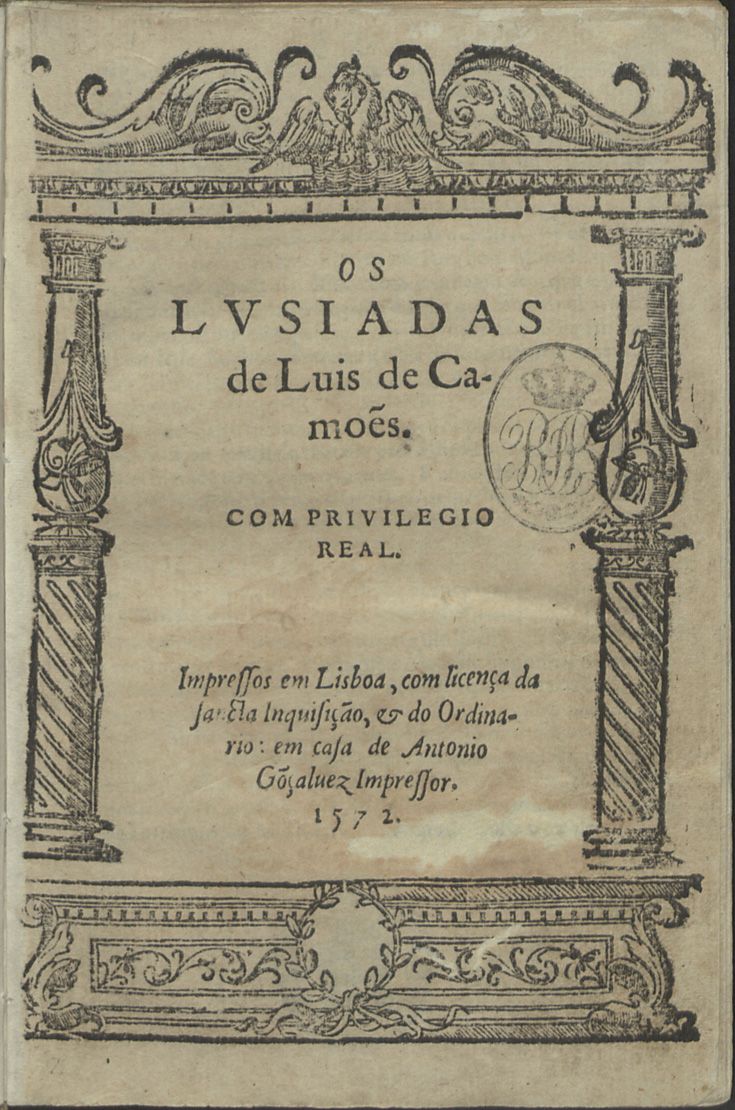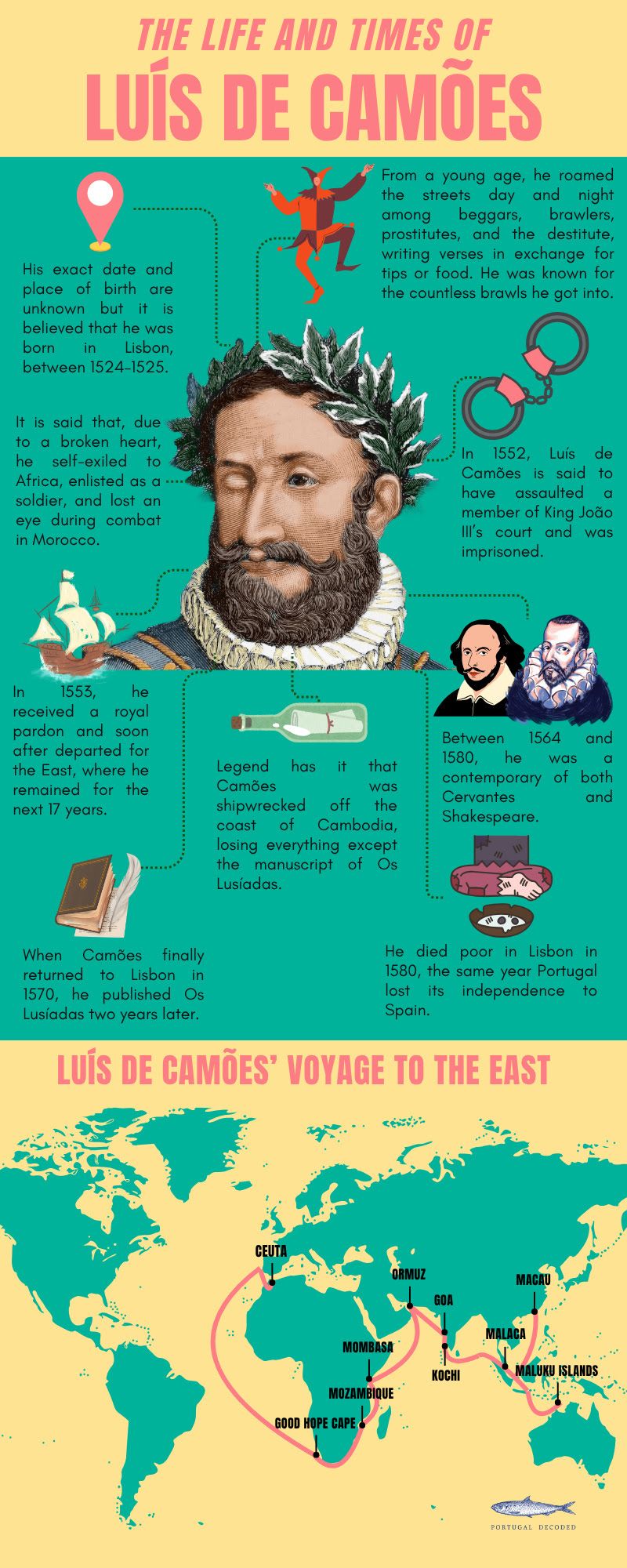Known for “Os Lusíadas”, the author is part of Portuguese history, having a day dedicated to him, 10 June.
Although the date of his birth is still unknown, he is predicted to have been born between 1524 and 1525 in Lisbon. Luís de Camões is linked to Portuguese literature for perpetuating Portuguese History in such a poetic way.
Os Lusíadas
Luís Vaz de Camões is the most important writer of the Portuguese Renaissance, having written Portuguese History in a way nobody else has ever done. Through rhymes and a particular metric system, Os Lusíadas is one of the better-written Portuguese books.
Written as an Ode, Os Lusíadas describes the events of Portuguese History until the discovery of the maritime path to India by Vasco da Gama. Typically, like the books from that period, the recalling of Ancient Greek and Roman mythology is usual, but even Luis Vaz de Camões managed to do it in a Portuguese way. Even though recalling Romanian Gods, the author still created Portuguese mythology creatures, such as Tágides, the Tagus River nymphs, who inspired him to write the book.
Some of these mythological figures got so linked to Portuguese history that people recognised Adamastor as something that all the navigators went through, at the Cape of Good Hope.

Taught at schools, Os Lusíadas is one of those books that students either hate or love. With so many hidden messages, the verses may be a little bit tricky to understand, with all the metaphors and words written in ancient Portuguese.
Luís Vaz de Camões's work is often compared to other writers like Dante, Petrarch and Shakespeare. Combining tragedy with grandiosity, Os Lusíadas was translated into 20 different languages, including Chinese and even Russian. Translating a book like Os Lusíadas may be a very complicated task, due to all the metric and rhyme system.
The author managed to have decasyllabic ottava rima verses in an AB AB CC rhyme scheme, in eight verses stanzas. In total, there are 1102 stanzas and 8816 verses. After describing some events in Portuguese History, Luís Vaz de Camões would also share his opinion, always maintaining the syllable and rhyme scheme.
One of the most remarkable moments of Os Lusíadas is the story of Pedro and Inês. Pedro was a prince, a future king, who fell in love with a maid, besides being married to a princess. Inês de Castro was murdered by the king, and Pedro took revenge for it. All those real events are real, but Luís de Camões wrote it poetically, some of the verses are still perpetuated in Portuguese culture when talking about the love story.
“Amor é fogo que arde sem se ver,
é ferida que dói, e não se sente;
é um contentamento descontente,
é dor que desatina sem doer.”
“Love is a fire that burns unsee,
A wound that aches yet isn’t felt
An always discontent contentment,
A pain that rages without hurting.”
ranslation by Richard Zenith
The work was dedicated to King Sebastião, a Portuguese king who went missing after a combat in Africa. His body was never found and, until today, people expect to see the king on a foggy day, as the legend suggests, by the time.

Some legends say that Luís Vaz de Camões, at some point in his life while handling the manuscripts of Os Lusíadas, fell off a boat on the high seas. Legends at the time said that he swum, with one hand only, to save the manuscripts that contained the most important literature pieces of Portuguese History.
Other Camões works
Besides being known for his work with Os Lusíadas, Luís Vaz de Camões is an important author of Portuguese literature, having written different types of poetry and theatrical pieces.
With poems exploring themes such as love, “saudade”, nature and life, Camões is also known for Sonetos. He also wrote songs called “cantigas” by that time, always following certain rhyme schemes as in Os Lusíadas.
Luís Vaz de Camões has also written theatre plays, like El-Rei Saluco, exploring religion and other moral issues. Filodemo is also a famous comedy by the author, played while using medieval theatre methods. Anfitriões is also a comedy from the author.
His death
Luís Vaz de Camões died on 10 June 1580, currently a bank holiday in Portugal. It is not known where his remains are, as they disappeared after the 1755 earthquake in Lisbon. Currently, there is a homage to the author in Panteão Nacional, although his body is not buried there.
Currently, the Deputy Editor at The Portugal News, Bruno G. Santos, is really interested in national politics. With a degree in Journalism and Communication, he also loves to write about different topics like Portuguese culture, society and other current affairs. Press card: 8463.











